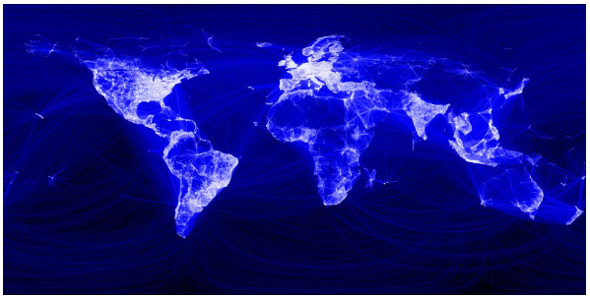Zuckerberg and Facebook, in collaboration with “technology leaders, nonprofits, local communities, and experts”, have launched an effort to deliver affordable Internet access to the two-thirds of the world that don’t have it called Internet.org.

Essentially, the group has identified three key areas that need to be addressed in order for ubiquitous Internet access to be a global possibility. The three “levers” are:
-Making internet access affordable by making it more efficient to deliver data.
-Using less data by improving the efficiency of the apps and experiences we use.
-Helping businesses drive internet access by developing a new model to get people online.
Obviously, the current costs of infrastructure and other services related to providing data to smartphones (which are rapidly dropping in price) are far too high for most people on the planet, but if, as the group intends, the industry can reduce the cost by a factor of 10 (and eventually 100), it’s a different story.
It’s noteworthy that instead of simply appealing to human generosity here, the group believes that companies that provide infrastructure, Internet services, and apps can all financially benefit from the endeavor to push affordable Internet access out to the world.

But why exactly is Internet connectivity a human right? “The internet not only connects us to our friends, families and communities, but it is also the foundation of the global knowledge economy,” reads Facebook’s treatise. It further states:
Many dynamics of resource-based economies are zero sum. For example, if you own an oil field, then I can’t also own that same oil field. This incentivizes those with resources to hoard rather than share them. But a knowledge economy is different and encourages worldwide prosperity. It’s not zero sum. If you know something, that doesn’t stop me from knowing it too. In fact, the more things we all know, the better ideas, products and services we can all offer and the better all of our lives will be.
There is much work to be done, but there are two aspects of the endeavor that bode well for its success: One is that because companies stand to benefit both from more efficient and effective technologies and also the prospect of adding literally billions of potential customers, they’re more likely to participate in earnest. The other is that when a tech mogul like Mark Zuckerberg has a worldview that Internet access is a human right, he’s unlikely to stop pursuing the goal until he succeeds, because it isn’t simply about profit margins and empire-building.
In response to this initiative, some will remark that it’s a ridiculous goal to help people living in a third-world slum get a smartphone with a data plan while those same people still don’t have access to clean water and enough food to keep their bellies full. But that’s shortsighted; giving people access to all of the world’s information via the Internet is the most liberating development since the invention of the book.
It’s important to remember that there are quite a few brilliant minds capable of changing the world amongst the 5 billion people who have yet to access the Internet a single time. Perhaps one of those young minds will cure cancer, or figure out how to deliver clean water to the whole planet, or come up with the best way yet to harvest and distribute renewable energy.




ReplyDeleteآهنگ سالگرد ازدواج
دانلود آهنگ های شاد تالار عروسی
دانلود آهنگ جدید خواننده های معروف ایرانی
آهنگ های میلاد قربانی
آهنگ های مسیح و آرش ای پی
دانلود آهنگ بلوچی
آهنگ های پرطرفدار جدید
دانلود آهنگ جدید رادیو جوان
آهنگ های رضا مریدی
آهنگ های یاسین ترکی